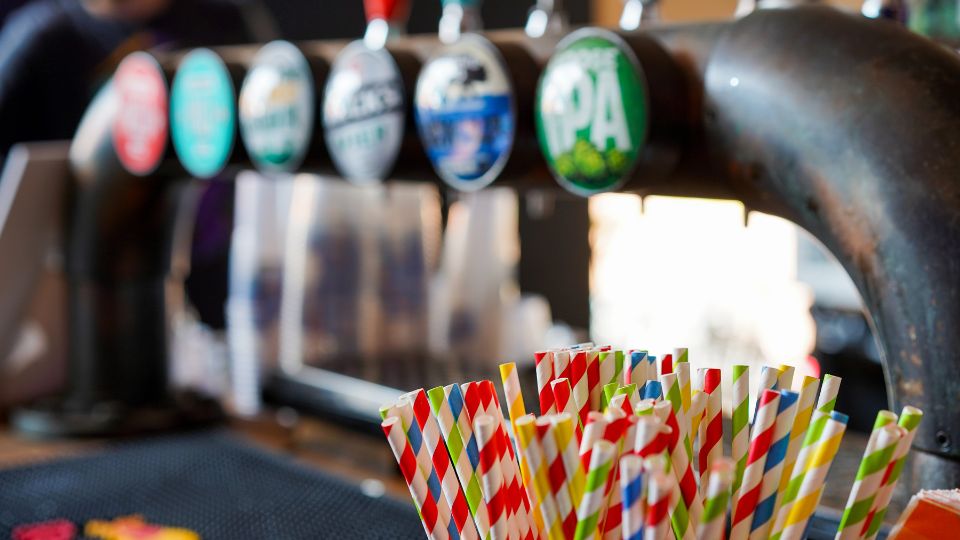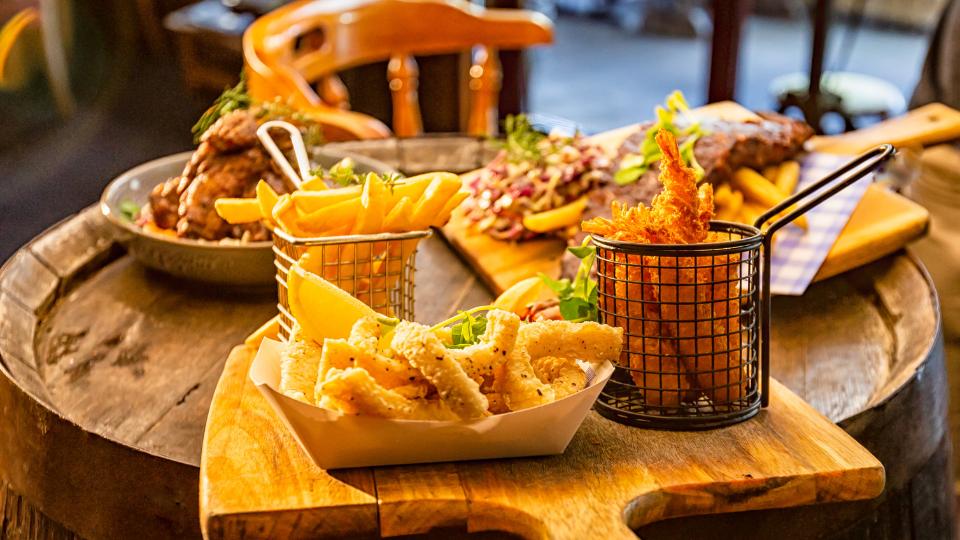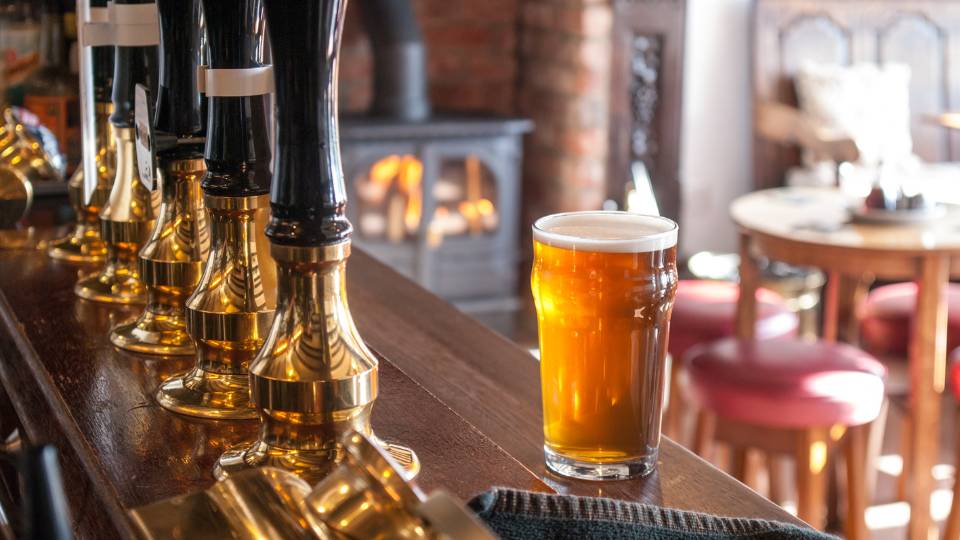
As a pub owner, managing waste is a crucial aspect of running your business efficiently and responsibly.
Pub waste includes various materials, from food waste to packaging and beyond.
Understanding how to manage pub waste effectively not only contributes to a cleaner environment but also helps your establishment comply with relevant regulations.
In this comprehensive guide, we’ll delve into what pub waste is, how to manage it, the laws and regulations surrounding it, and tips for proper disposal.
Table of contents:
- What is Pub Waste?
- How to Reduce Pub Waste
- Pub Waste Laws and Regulations in the UK
- How to Dispose of Pub Waste
- Facts and Statistics About Pub Waste
- Conclusion
What is Pub Waste?
Pub waste includes anything that is created as part of your pub existing that needs to be disposed of.
Here are some of the categories below:
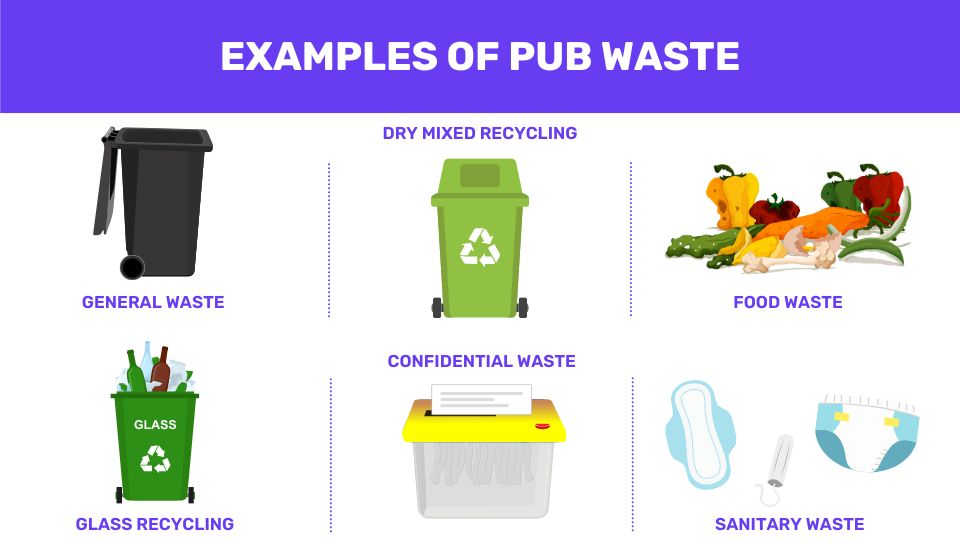
General Waste
General waste in pubs typically includes non-recyclable items such as packaging, disposable cups, and non-biodegradable materials.
- Disposable packaging (e.g., plastic wrap, foam containers)
- Non-recyclable paper products (e.g., paper towels, napkins)
- Plastic cutlery and straws
- Non-biodegradable materials (e.g., Styrofoam cups, plastic bags)
- Soiled or contaminated materials (e.g., used tissues, paper plates)
- Broken glassware
- Waxed cardboard (e.g., from packaging)
- Composite materials (e.g., laminated paper products)
- Single-use condiment packets (e.g., ketchup, mustard)
- Food-soiled disposable gloves and aprons
Dry Mixed Recycling
Dry mixed recycling in pubs usually includes paper, cardboard, plastics, and metals that can be recycled together, commonly found in packaging and beverage containers.
- Cardboard boxes
- Office paper and envelopes
- Plastic bottles (e.g., soda bottles, water bottles)
- Aluminium cans (e.g., beer cans, soft drink cans)
- Tin cans (e.g., canned food containers)
- Magazines and newspapers
- Plastic food containers (e.g., yoghurt cups, takeout containers)
- Milk and juice cartons
- Cereal boxes and other cardboard packaging
- Aluminium foil (clean and free of food residue)
Food Waste
Food waste in pubs consists of leftover food, trimmings, and expired produce, which can be composted or converted into energy through anaerobic digestion.
- Leftover food scraps (e.g., vegetable peelings, fruit cores)
- Spoiled or expired food items (e.g., dairy products, meat)
- Plate scrapings and uneaten portions
- Used tea bags and coffee grounds
- Stale bread and pastries
- Vegetable trimmings from food preparation
- Eggshells and nut shells
- Unserved or untouched salads
- Rotten or mouldy fruits and vegetables
- Unusable parts of seafood (e.g., shrimp shells, fish bones)
Are you operating a gastro-pub, or maybe you’re hosting pop-up food events? Read more in our restaurant waste guide here!
Glass Recycling
Glass recycling involves the collection and processing of glass bottles and jars used in pubs, which can be melted down and reused to make new glass products.
- Lager bottles
- Beer bottles
- Wine bottles
- Spirit bottles
- Soft drink bottles
- Sauce jars (e.g. ketchup, mayonnaise)
- Jam jars
- Olive oil bottles
- Salad dressing bottles
- Perfume bottles
Confidential Waste
Confidential waste in pubs includes sensitive documents and customer information that require secure disposal methods to protect privacy and prevent identity theft.
- Customer receipts with sensitive information
- Credit card receipts
- Bank statements
- Payroll records
- Employee contracts
- Tax documents
- Order invoices with personal details
- Reservation lists
- Customer feedback forms with personal information
- Staff schedules with personal details
Sanitary Waste
Sanitary waste from pubs refers to hygiene products such as paper towels, tissues, and sanitary napkins, which require proper disposal to maintain cleanliness and prevent contamination.
- Used paper towels
- Used tissues
- Sanitary napkins (wrapped)
- Tampons (wrapped)
- Diapers or Nappies (wrapped)
- Incontinence pads (wrapped)
- Disposable gloves (used)
- Personal hygiene wipes
- Bandages and wound dressings
- Medical swabs
Understanding the types of waste your pub produces is the first step in implementing an effective waste management strategy.
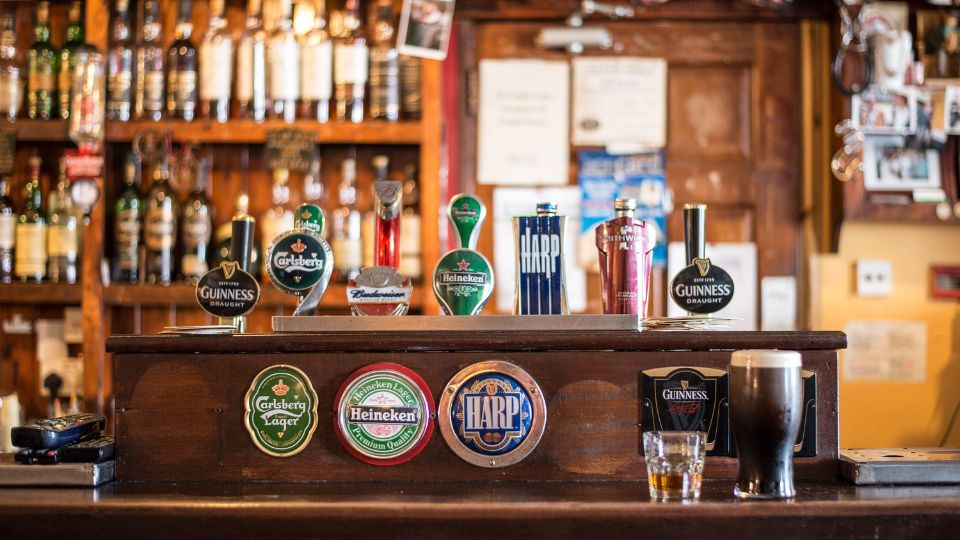
How to Reduce Pub Waste
There are lots of ways to reduce the amount of pub waste your business is generating.
Making sure to audit well and plan in advance is key, but check out more of our top tips below.
Reduce Waste at the Source
Minimising waste generation starts with conscious purchasing decisions and efficient inventory management at your pub.
Try to:
- Purchase Products with Minimal Packaging
Choose suppliers that offer products with minimal packaging or opt for bulk purchases to reduce packaging waste.
- Implement Portion Control Measures
Train kitchen staff to practice portion control when preparing meals, reducing the likelihood of leftover food that may end up as waste.
- Effective Inventory Management
Use inventory management software to track stock levels and expiration dates, ensuring that ingredients are used before they spoil.
Separate Waste Streams
Proper segregation of waste streams is crucial for effective recycling and waste disposal.
- Set Up Clear Recycling Stations
Install separate bins for general waste, recyclables (such as glass, plastic, paper, and metal), and organic waste.
Clearly label each bin to avoid confusion and contamination.
- Educate Staff and Customers
Provide training for staff on how to correctly dispose of different types of waste.
Display informative signage for customers to encourage proper waste disposal.
Implement Recycling Programs
Partnering with local recycling facilities and engaging staff and customers in recycling efforts can significantly reduce waste:
- Establish Partnerships
Collaborate with local recycling facilities or waste management companies to arrange regular collections of recyclable materials.
- Educate and Encourage Recycling
Raise awareness among staff and customers about the importance of recycling and the specific items that can be recycled.
Provide incentives or rewards for participating in recycling programs.
Compost Organic Waste
Composting organic waste not only diverts it from landfills but also creates valuable resources for gardening and agriculture
- Set Up a Composting System
Install compost bins or tumblers in the kitchen or outdoor areas to collect food scraps and other organic materials.
- Educate Staff on Composting Practices
Train staff on what can and cannot be composted and provide guidelines for proper composting techniques.
- Use Your Compost!
Use the resulting compost in on-site gardens or donate it to local farms and community gardens.
Invest in Waste Reduction Technologies
Innovative technologies can streamline waste management processes and enhance overall efficiency.
- Composting Machines
Invest in composting machines that accelerate the decomposition of organic waste, producing compost in a shorter timeframe.
- Food Dehydrators
Install food dehydrators to reduce the moisture content of food waste, minimising odours and facilitating composting.
- Waste Compactors
Use waste compactors to compress and reduce the volume of non-recyclable waste, optimising storage space and reducing collection frequency.
By implementing these strategies and investing in waste reduction technologies, pub owners can significantly minimise their environmental impact while also improving operational efficiency and cost-effectiveness. Check out alternative pub food ideas on our website for more ideas!
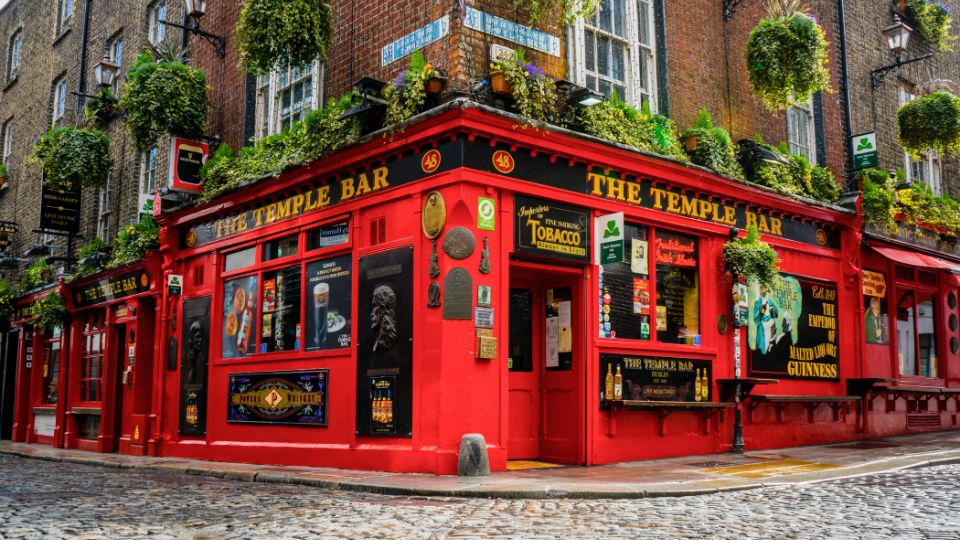
Pub Waste Laws and Regulations in the UK
Environmental Protection Act 1990
The Environmental Protection Act 1990 is a foundational piece of legislation that outlines the legal framework for waste management and environmental protection in the UK.
Key provisions of this act relevant to pub owners include:
- Duty of Care
Pub owners have a legal obligation to ensure that waste produced on their premises is managed responsibly from generation to disposal.
This includes preventing the escape of waste and taking reasonable steps to transfer it only to authorised persons.
- Waste Hierarchy
The act promotes the waste hierarchy, which prioritises waste prevention, reuse, recycling, and recovery over disposal.
Pub owners are encouraged to minimise waste generation and maximise resource efficiency.
- Polluter Pays Principle (PPP)
The act incorporates the polluter pays principle, holding businesses financially liable for the costs associated with the management and disposal of their waste.
Waste Management Licensing Regulations 2018
The Waste Management Licensing Regulations 2018 impose additional requirements on businesses that handle certain types of waste. Key aspects of these regulations include:
- Waste Management License
Pub owners may be required to obtain a waste management license if they engage in activities such as storing, treating, or disposing of waste on their premises.
This license is issued by the relevant environmental regulatory authority and ensures that waste management activities meet specific standards and requirements.
- Exemptions and Exclusions
Some activities may be exempt from licensing requirements, such as small-scale waste operations or certain types of waste.
However, pub owners should carefully review the regulations to determine if their activities fall within these exemptions.
Duty of Care Regulations
The Duty of Care Regulations place a legal obligation on businesses to manage their waste responsibly throughout its lifecycle.
Key provisions of these regulations include:
- Proper Storage
Pub owners must store waste safely and securely to prevent pollution, environmental harm, or health risks.
This includes using suitable containers, segregating different types of waste, and implementing spill prevention measures.
- Transportation Requirements
When transferring waste off-site for disposal or recycling, pub owners must ensure that it is transported by authorised carriers and accompanied by appropriate documentation, such as waste transfer notes or consignment notes.
- Record-Keeping Obligations
Pub owners are required to maintain accurate records of their waste management activities, including details of waste produced, transferred, and disposed of.
These records may be subject to inspection by regulatory authorities.
Consequences of Non-Compliance
Failure to comply with waste management regulations can have serious consequences for pub owners, including:
- Fines and Penalties
Regulatory authorities have the power to impose fines and penalties on businesses that violate waste management regulations.
The severity of these penalties may vary depending on the nature and extent of the non-compliance.
- Legal Proceedings
Non-compliance with waste management regulations can result in legal proceedings, including enforcement actions or prosecutions.
Pub owners may be required to appear in court and could face criminal charges or civil lawsuits.
- Reputational Damage
Public awareness of environmental issues is growing, and businesses that neglect their waste management responsibilities risk damaging their reputation and losing customer trust.
Understanding and complying with waste management regulations is essential for pub owners to operate legally, responsibly, and sustainably.
By adhering to the relevant legislation, pub owners can minimise their environmental impact, avoid legal repercussions, and contribute to a cleaner and healthier environment for future generations.
Regular monitoring, staff training, and engagement with regulatory authorities can help ensure ongoing compliance with these regulations.

How to Dispose of Pub Waste
There are multiple options available to you when you need to plan how to dispose of your pub’s waste.
1. Local Authority Collection Services
Many local councils provide waste collection services for businesses, including pubs.
These services typically include scheduled collections for general waste as well as separate collections for recyclable materials.
Local councils tend to charge a much higher amount for waste collection than privately owned waste collectors as many are already struggling to keep up with demand from domestic waste collection.
Here’s how pub owners can use local authority collection services effectively:
- Contact the Local Council
Pub owners should contact their local council to inquire about waste collection services available in their area.
They can provide information on collection schedules, bin requirements, and any applicable fees or charges.
- Segregate Waste
To facilitate efficient collection and recycling, pub owners should segregate different types of waste at the source.
This may involve using separate bins or containers for general waste, recyclables (such as glass, plastic, paper, and metal), and organic waste.
- Comply with Collection Requirements
Pub owners must ensure that waste is presented for collection in accordance with the council’s requirements.
This may include using specified bins or containers, placing them at designated collection points, and adhering to collection schedules.
2. Private Waste Management Companies
For pubs with waste management choosing to enlist a private waste management company can provide tailored solutions.
Private waste management companies are usually cheaper than using the council but can be slow to respond to problems like missed collections and damages due to poor customer service and lots of accounts to manage.
Here’s how pub owners can benefit from private waste management services:
- Waste Solutions
Private waste management companies offer waste collection and disposal services.
The pickup times and schedule for your restaurant will be based on when they are already in the area, so usually lack some flexibility.
This may include collection of general waste, recycling and more.
- Professional Expertise: Private waste management companies typically have expertise in handling a wide range of waste materials and compliance with regulations.
They can advise pub owners on best practices for waste management and ensure legal compliance.
3. On-Site Waste Treatment Facilities
Installing on-site waste treatment facilities allows pubs to process waste directly on their premises, reducing reliance on external collection services and minimising the environmental impact of their waste.
Here are some common on-site waste treatment options:
- Composting
Pubs can set up composting facilities to process organic waste, such as food scraps and garden waste, into nutrient-rich compost.
This compost can be used to fertilise gardens or donated to local community projects.
- Recycling Equipment
Installing recycling equipment, such as compactors or balers, allows pubs to process recyclable materials more efficiently, reducing waste volume and maximising recycling rates.
- Waste-to-Energy (WTE) Systems
Advanced waste-to-energy systems can convert certain types of waste into renewable energy sources, such as biogas or electricity, providing an environmentally sustainable alternative to traditional waste disposal methods.
4. Waste Brokers
Waste brokers (just like us!) act as intermediaries between businesses, such as pubs, and waste management service providers.
They can offer several advantages for pub owners seeking efficient and cost-effective waste management solutions:
- Tailored Services
Waste brokers work closely with a network of waste management companies, allowing them to tailor services to the specific needs of pubs.
Whether it’s regular waste collection, recycling programs, or hazardous waste disposal, waste brokers can find the most suitable solutions.
- Cost Savings
Waste brokers leverage their industry expertise and relationships with multiple service providers to negotiate competitive pricing on behalf of pub owners.
This can result in cost savings compared to dealing directly with individual waste management companies.
- Streamlined Process
Dealing with multiple waste management companies can be time-consuming and administratively burdensome for pub owners.
Waste brokers streamline the process by managing all aspects of waste management, from initial consultation to ongoing service coordination.
- Compliance Assurance
Waste brokers stay abreast of relevant regulations and compliance requirements, ensuring that pub owners remain compliant with waste management laws and regulations.
This reduces the risk of fines or penalties associated with non-compliance.
- Single Point of Contact
By partnering with a waste broker, pub owners have a single point of contact for all their waste management needs.
This simplifies communication, troubleshooting, and service coordination, enhancing overall efficiency and convenience.
- Environmental Sustainability
Many waste brokers prioritise environmental sustainability and can recommend eco-friendly waste management practices, such as recycling programmes and waste-to-energy solutions.
This aligns with the growing consumer demand for businesses to minimise their environmental footprint.
By exploring these disposal options and choosing the most suitable solutions for their needs, pub owners can effectively manage waste, minimise environmental impact, and contribute to a more sustainable future.
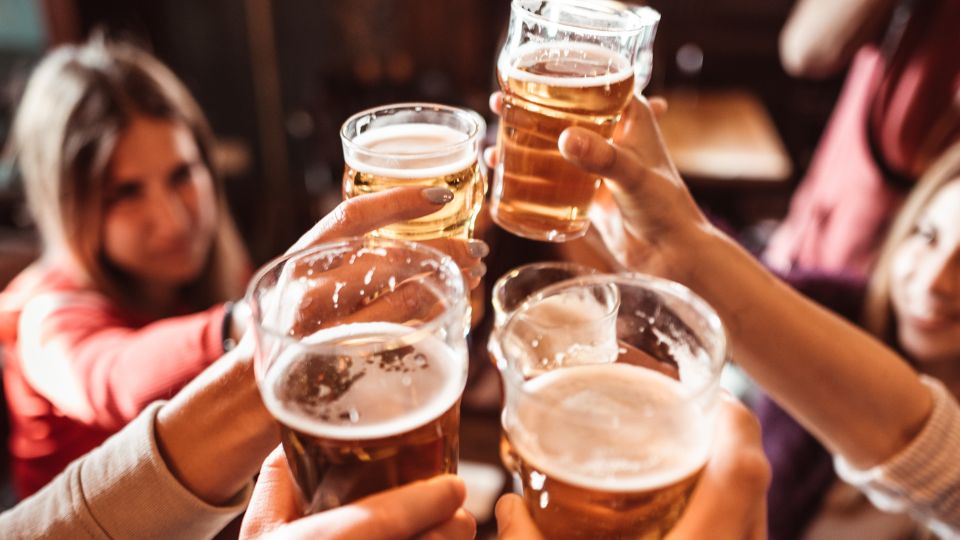
How can I reduce single-use items in my pub?
Reducing single-use items is an essential aspect of pub waste management.
Pubs can take several steps in this direction by offering biodegradable or compostable alternatives for items such as straws, stirrers, and takeaway containers.
Encouraging customers to bring their reusable bottles and providing water stations for refills also helps minimise the use of plastic bottles and avoid being thrown into a pub bin.
Raising awareness among staff and customers about the detrimental effects of single-use plastic and the benefits of sustainable alternatives can foster a culture of conscious consumption.
Facts and Statistics About Pub Waste
Here are some interesting facts and statistics about pub waste in the UK:
- Food waste costs Britain’s pub owners more than £350 million every year!
- Food waste from pubs emit the same quantity of carbon dioxide as more than 600,000 cars.
- According to Waste & Resources Action Programme (WRAP), wasted food costs the pub sector £357 million every year, which equates to roughly 41p per meal served.
- UK pubs serve around 871 million meals every year – 11% of all the meals we eat out!
- Pubs in the UK are producing 873,800 tonnes of waste each year.
- 173,000 tonnes of waste produced by pubs are strictly food waste.
- For every meal served in a UK pub, 1 in 6 meals is completely wasted.
- On average, 21% of food waste comes from spoilage, 45% from food prep and 34% from consumer plates
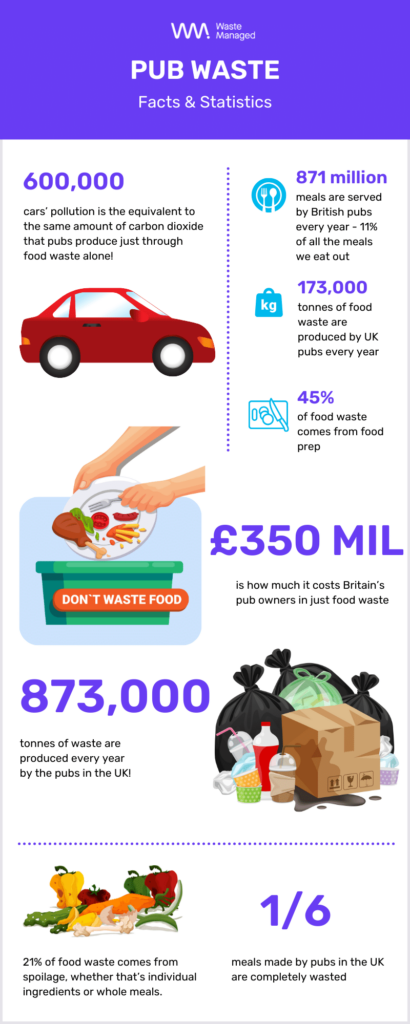
Conclusion
Managing pub waste effectively is essential for both environmental sustainability and legal compliance.
By implementing waste reduction strategies, adhering to regulations, and exploring disposal options, pub owners can minimise their environmental footprint and contribute to a cleaner, healthier future.
Remember, every effort to reduce, reuse, and recycle pub waste makes a meaningful difference in preserving our planet for future generations.



